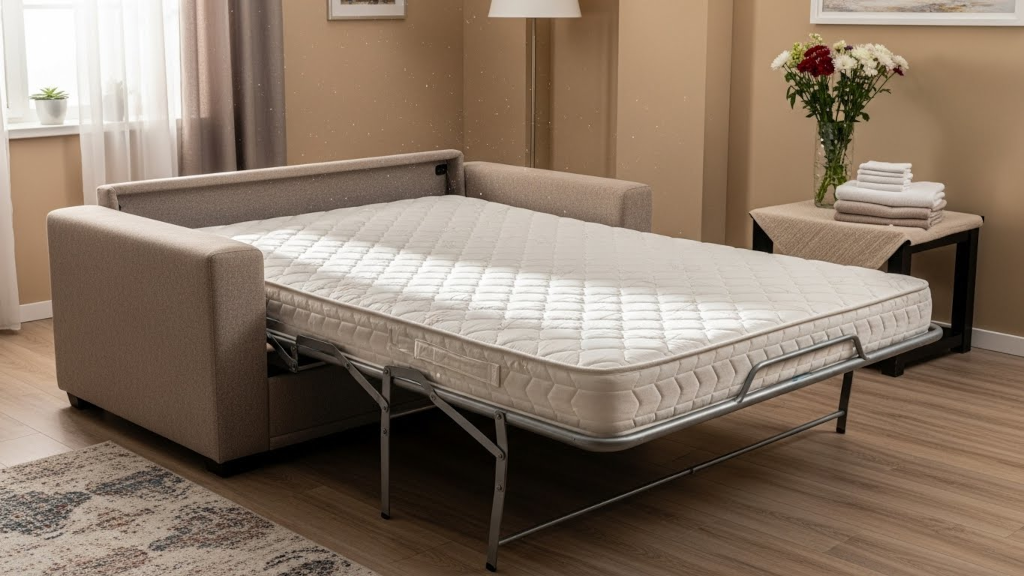The smell of hard work is expected in sports, but strong odors don’t need to linger on your gear. For team managers, parents, and coaches, keeping equipment fresh between practices and games is essential for comfort, hygiene, and confidence. Sweat, dirt, and moisture build up quickly, and without regular maintenance, odors can take hold in even the cleanest homes, gyms, or storage areas.
Instead of masking the smell with heavy perfumes, the key is using targeted odor-fighting techniques that eliminate the source. From proper ventilation to spray-based deodorizing routines, a few smart habits can keep gear clean and ready for action.
Why Gear Gets So Smelly So Fast
Athletic equipment is designed to absorb shock, resist tearing, and stay close to the body. Unfortunately, that also means it holds onto sweat, bacteria, and environmental moisture. Items like cleats, gloves, pads, and jerseys are repeatedly exposed to damp conditions, then thrown into tight bags or lockers with no airflow. These environments encourage odor-causing bacteria to grow fast.
The result is a cycle where smells compound over time. Unless handled correctly, even clean-looking gear can carry hidden odor deep within its fabric and padding.
Daily Habits Make the Biggest Difference
Effective odor control starts with small actions that prevent buildup in the first place. Always unpack gear as soon as possible after each use. Instead of tossing everything in a corner, spread it out in a dry area with plenty of air circulation. Ventilation is one of the most overlooked but important parts of odor prevention.
Once laid out, apply a fine mist of a residue-free odor-neutralizing spray to items that can’t go into the wash. This includes shin guards, shoulder pads, cleats, and helmets. Look for a fabric-safe formula that breaks down scent molecules instead of covering them up. Fast-drying, plant-based options are ideal because they allow gear to be sprayed and stored again quickly.
When possible, keep sports bags open between uses. Closed environments hold on to both smells and moisture. Spraying the interior of the bag and wiping it down weekly helps reduce the risk of cross-contamination from sweaty gear.
The Right Way to Spray
Use just enough spray to lightly dampen the surface; there’s no need to soak items. Too much liquid can interfere with padding or adhesives. Focus on high-sweat zones like the interior of gloves, shoe soles, helmet linings, and straps. For fabric layers like jerseys or compression wear, always let sprayed items dry fully before tossing them back in a gym bag or laundry basket.

Avoid heavy fragrance sprays that only mask the issue. These often mix with sweat and make odors worse. A true odor eliminator should leave behind no sticky film and no artificial after-scent. What remains should be neutral, clean, and barely noticeable, just fresh air where stale odors used to be.
One Spot Where Smell Always Hides
The gear bag itself is often the worst offender. Even with clean contents, a bag that has absorbed weeks of use will carry its odor. Machine-washable bags should be cleaned monthly with a mild detergent, followed by a thorough air dry. For non-washable bags, spray the lining and seams, and leave the bag unzipped in a dry, sunny location when not in use.
What to Wash and What to Deodorize
Some gear items should be cleaned using a spray between games, while others need regular laundering. A basic guideline:
-
Spray between uses: cleats, shin guards, shoulder pads, helmets, sports bags, braces, and gloves
-
Wash regularly: socks, jerseys, compression layers, towels, undergarments, and headbands
Avoid using the same laundry detergent you use for everyday clothes. Look for sport-specific detergents or additives designed to break down protein-based sweat compounds. Cold water helps preserve elastic material and prevents odor-setting.
Keep Shared Spaces Clean Too
If you’re managing equipment for a full team, consider using odor sprays in shared gear bins, supply closets, or school storage areas. A quick mist after each use keeps smells from building up and improves the overall environment for players and coaches. Sprays can also be applied to seating benches, locker shelves, and gym mats that see regular traffic but don’t get cleaned as often as they should.
In homes, designate a clean, ventilated area for gear drying. Use fans to circulate air, and open windows when weather permits. If gear is stored in the garage, make sure it stays off the floor and away from heat or dampness.
Consistency Wins the Game
The most effective odor management plan is the one you follow regularly. A light spray after each use, open-air drying, and a weekly deep clean for both gear and bags will keep smells from taking over. It doesn’t require expensive equipment or harsh chemicals, just consistency and the right product.
Whether you’re juggling multiple players, coaching a youth team, or just trying to keep your gear under control, odor prevention is easier when it becomes part of the post-practice routine. Keep your equipment fresh, your storage clean, and your team ready to go.








